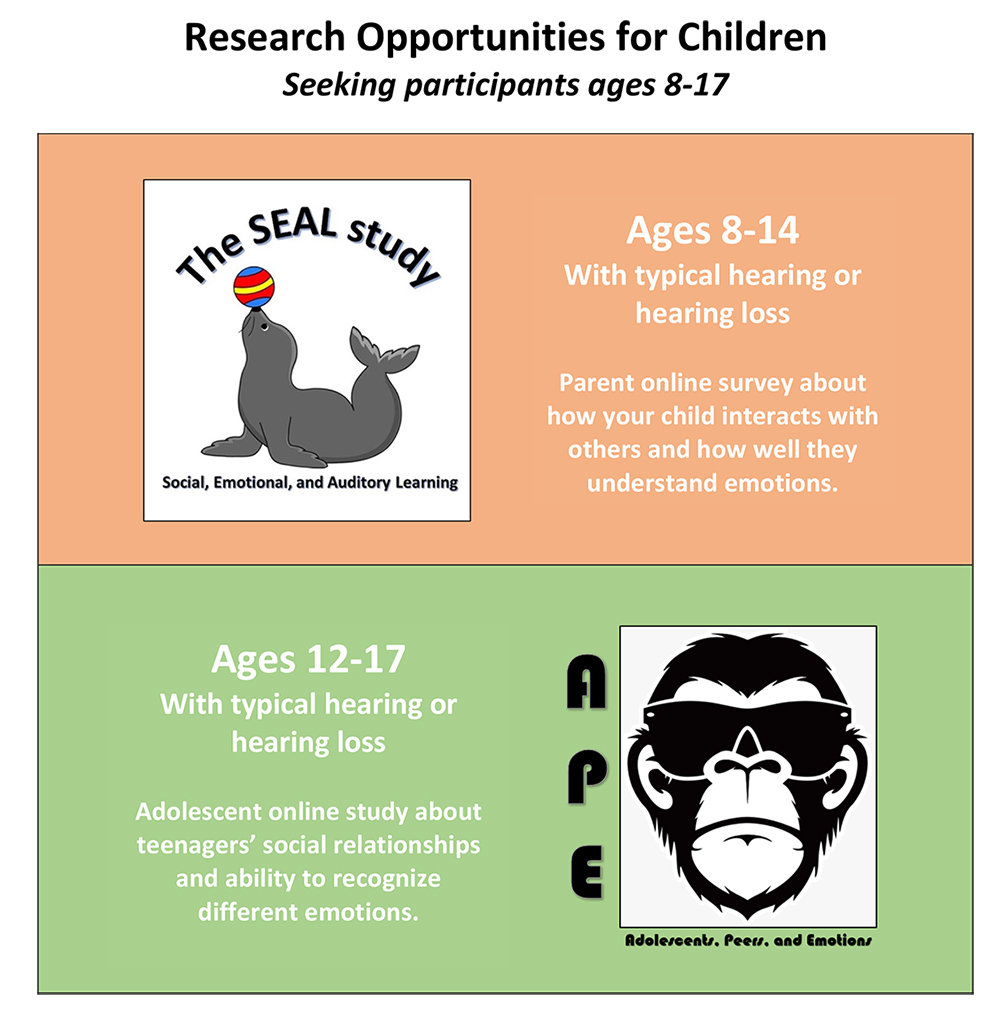We have several research projects for which we are recruiting infants, children, and adolescents. Some studies include children with hearing loss and others include children with normal hearing. Please complete the contact information form (also in Spanish) if you’d like to participate in any of our studies.
Daily device use in young children (0-5 years old) with cochlear implants for at least 6 months. We are interested in how much children with cochlear implants wear their devices and how that relates to other factors, such as listening and speaking. Children will complete a hearing test, in which the child listens to words or sentences while wearing their cochlear implant. Children will also participate in a language assessment in which they are asked to point or verbally respond to pictures and objects. Parents/guardians will answer questions about themselves and their family using an online survey. We will get information about your child’s cochlear implant during the testing session by connecting your child’s device to the computer and recording details about the device. We also will ask you to complete a release of records form to allow the researchers to contact your child’s managing audiologist. This study will take about 2 hours, and participants will be compensated.
Speech and hearing study in children (5-8 years old) with cochlear implants and typical hearing. We are interested in how children with cochlear implants listen and produce sounds. We are particularly interested in what sounds they have difficulties hearing and saying. We will look for correct and incorrect speech patterns across several children to see how we might improve speech therapy for deaf children who use cochlear implants. This in-person study at Callier Richardson or Dallas will involve the child listening to words and watching a series of pictures presented on a computer screen. S/he will be asked to listen to the words and say them back. Her/His words will be recorded on the computer for analyses. This study will take about 1.5-2 hours, and compensation will be provided.
Music experiences in adolescents (13-17 years old) and adults (18-80 years old) with hearing loss and typical hearing. We are studying how and why individuals listen to music, and if this differs for those with hearing loss. Knowledge from this project will help us to understand better if having a hearing loss affects perception or appreciation of music. This study involves an online survey and some listening tasks.
Emotion recognition in the visual processing of faces for adolescents (13-17 years old) with cochlear implants and typical hearing. We are interested in learning about how adolescents with cochlear implants process emotional and social information. In particular, we will look at their recognition of emotional facial expressions and their attention to visual cues during social interactions. Participants of this study will be asked to look at images/videos of faces on a computer screen and determine the emotion being expressed by the person pictured. Their visual-attention to each face will be recorded using an eye-tracker and will be analyzed with their emotion recognition responses. The study will take about 1 hour, and compensation will be provided.
Together, we can learn more about how children with hearing loss develop speech and hearing, as well as how they feel about themselves.
Also, see directions to Callier Center Dallas.



